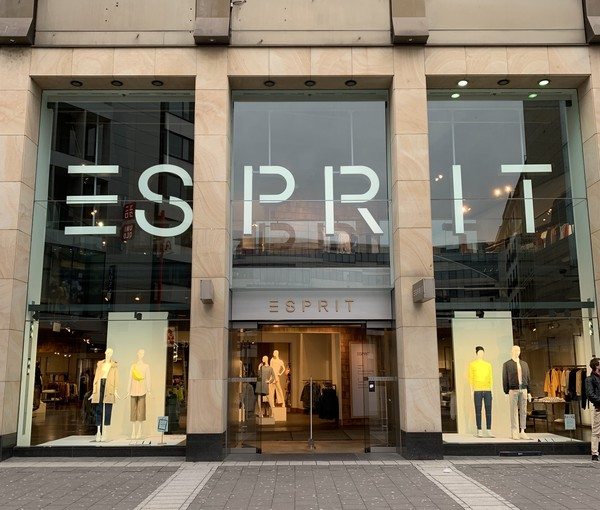Esprit has changed the reporting period for its financial results, and recently announced ‘annual’ figures
for the second half of 2020, the end of its current financial year having shifted from June 30 to December 31.

Consequently, the group’s latest ‘annual’ results cover a period of six months only, and are therefore hard to compare with those of the previous financial year.
However, Esprit seems to have managed to slightly stem its losses, reducing losses for exceptional items and cancelling debts worth HKD 2.34 billion (approximately €234 million) as part of the company’s restructuring efforts.
Despite the pandemic’s negative impact on Esprit’s retail and wholesale businesses, the HKD414 million annual loss (approximately €41 million) recorded by the group was a good deal lower than the loss it posted in the previous financial year, which amounted to HKD3.992 billion.
This encouraging result owes much to the management team’s energetic efforts and the success of Esprit’s restructuring plan, as well as to stringent cost-cutting measures.
Esprit’s total revenue in the period fell to HKD885 million (approximately €88 million) after the deconsolidation of the group’s six German subsidiaries.
The latter accounted for over 80% of Esprit’s consolidated revenue and of its main market activity during the 2019-20 financial year.
“The past financial year has been tough for the group. The pandemic’s impact on the retail trade has been especially severe. Owing to the lockdown measures imposed across Europe, directly owned and franchised Esprit stores, and a large number of our wholesale partners’ stores, have sometimes had to close for weeks at a time. Even when certain stores reopened, health protection measures prevented customers from going shopping,” said the CEO of Esprit, Mark Daley.
Daley is hoping that, in the long-term, the group will get back on the growth track, both in Asia and Europe. But this ambitious goal is still far from being achieved. Esprit will continue to deploy “proactive measures” to tackle the immediate challenges posed by the pandemic, and will focus on becoming profitable again within the next two years.
